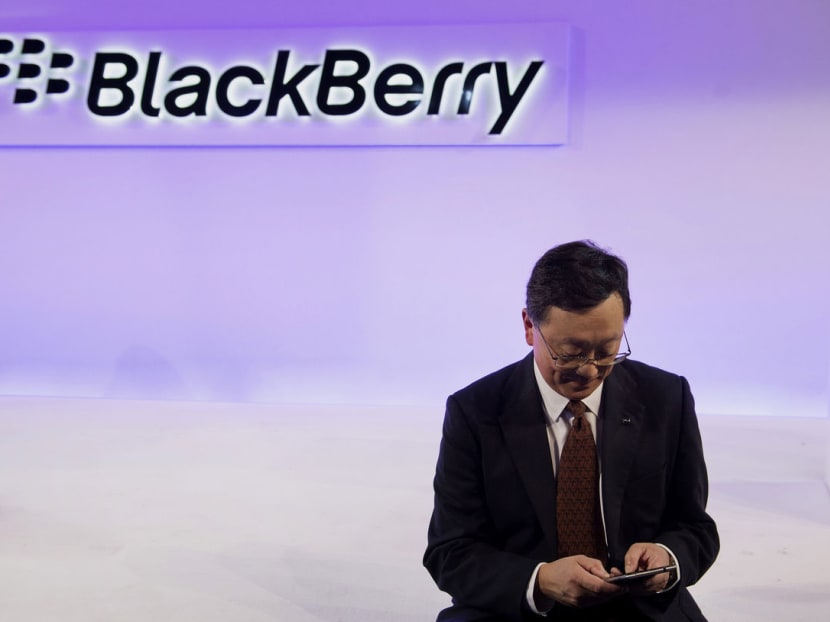BlackBerry uses IBM software to make Samsung tablets spy-proof
BERLIN — BlackBerry has introduced a tablet computer aimed at government and corporate customers that it says can let users access consumer applications such as YouTube and WhatsApp while keeping confidential work-related information away from spies and crooks.

Mr John Chen, chief executive officer of BlackBerry Ltd. Photo: Bloomberg
BERLIN — BlackBerry has introduced a tablet computer aimed at government and corporate customers that it says can let users access consumer applications such as YouTube and WhatsApp while keeping confidential work-related information away from spies and crooks.
The SecuTABLET, shown at the CeBIT conference in Hanover, Germany, is based on Samsung Electronics’s Tab S 10.5 and uses International Business Machines software to wrap applications that hold secrets into a virtual container where they can’t be harmed by malware. Germany’s computer-security watchdog is certifying the device for classified government communication, BlackBerry’s Secusmart unit said yesterday (March 14).
BlackBerry acquired Secusmart last year in an effort to win more business from customers demanding rigorous data security. The Waterloo, Ontario-based company, which sold few of its own 2011 Playbook tablets, is shifting from making hardware to building security components and software into competitors’ devices as the frequency of cyber attacks mounts.
The tablet integrates BlackBerry’s technology with one of its main competitors in the mobile-device market. When IBM and Apple signed a deal to collaborate on mobile business applications last July, BlackBerry’s stock dropped 12 per cent.
“We do recognise that people actually have a personal life and a business life,” said Ms Lee Epting, head of Samsung’s European corporate-customer business. “We need to be able to easily transfer between those two worlds.”
WORK AND PERSONAL
The tension between maintaining personal privacy while still letting employers secure phones has been in the spotlight recently with former US Secretary of State Hillary Clinton’s use of a single device and a home-based server for both her government work and private communications.
A poll by IBM showed that 63 per cent of all officials need access to specific software such as for finances and controlling on their mobile devices. However, many government officials and executives have resisted the use of so-called crypto phones as they tend to limit what users can do with them.
For instance, making a secure call requires both sides to have the necessary technology installed, and many programmes aren’t allowed to run on them because they may pose a point of entry for viruses or snooping software. The devices also tend to be more expensive than off-the-shelf phones.
Secusmart tries to make its devices safe and useful at the same time by installing a small chipcard, which encrypts voice and data and cannot be corrupted by malware targeting the operating system. The company has shipped BlackBerry 10 devices modified in such a way to German Chancellor Angela Merkel and members of her government.
CLOSING GAP
Samsung has begun emphasising its enterprise products as it lost its lead in the smartphone market to Apple in the fourth quarter. Its Galaxy S6 phone will ship with the Knox software, which combines improved user authentication and encryption to protect the device from attacks.
“Together with IBM and Samsung, we’re closing the remaining gap” in Germany’s security network, Secusmart Chief Executive Officer Hans-Christoph Quelle said in a statement. “German federal authorities will have the most modern and most secure communications network in the world.” BLOOMBERG





